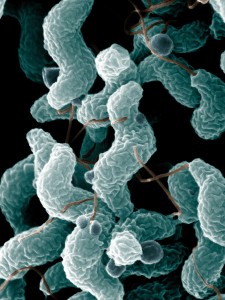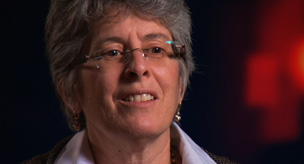This joint research effort will initiate a new field of clinical laboratory diagnostic tests that target the human microbiome
Mayo Clinic Center for Individualized Medicine is about to commence clinical trials utilizing innovative clinical laboratory tests that target the human microbiome. Women’s health is the initial focus for these clinical studies.
Mayo Clinic is collaborating with San Francisco-based Whole Biome, Inc., to conduct these clinical trials. Whole Biome developed the diagnostic tests to be used in the clinical study.
New Field of Medical Laboratory Testing May Emerge
If successful, this collaboration may create a new field of medical laboratory diagnostic tests that target the microbiome. The initial focus of this research team is preterm labor, the most common cause of infant death and long-term disability in children, noted a report published by Genomeweb.com.
The microbiome is the ecological community organisms—commensal, symbiotic, and pathogenic—that reside in and on the human body. Scientists estimate that there are 10 times more microbial cells than human cells in a healthy individual.
In an article published by Science Daily, Martin Jack Blaser, M.D, a researcher at New York University, explained that the type and number of different microbial species vary from person to person. Blaser believes an individual’s bacterial signature may be as unique as their DNA signature or fingerprint.
Mayo Clinic Previously Linked Vaginal Microbiomes to Preterm Labor
Previous research by the Mayo Clinic linked preterm labor to unbalanced vaginal microbiomes, as well as vaginal yeast infections and bacterial vaginosis.

Certain strains of the campylobacter bacteria (pictured above) had previously been implicated in preterm labor and spontaneous abortion in livestock. Scientific evidence now suggests that this foodborne pathogen may trigger preterm labor in humans, as well. New tests from the Mayo Clinic/Whole Biome collaboration aim to detect a range of bacteria, such as campylobacter, to help expectant mothers achieve full-term pregnancies. (Image copyright Mayo Clinic)
Whole Biome Complete Biome Test Generates Hi-Res Microbiome Profiles
Whole Biome is a commercial startup within Janssen Labs@QB3, a research organization established by the University of California System that is affiliated with Johnson & Johnson (NYSE:JNJ). This biomedical research firm is focused on understanding the microbiome’s role in disease, then develop tests to diagnose and treat diseases.
Whole Biome’s Complete Biome Test generates microbiome profiles with strain-level resolution at a low cost. This enables researchers and physicians to more rapidly conduct large-scale studies. It also plays a role in the development of microbiome-based diagnostics to help predict, treat, and prevent life-threatening issues, noted in a Mayo Clinic News Network report.

At the Mayo Clinic Center for Individualized Medicine, Director Heidi Nelson, M.D. (pictured above) is leading a team of researchers that will conduct clinical trials to explore the role of the human microbiome in disease. As part of these trials, new diagnostic tests will be utilized. (photo copyright by Mayo Clinic.)
“Understanding the microbiome, and translating that understanding into enhanced patient care is a major goal within the Center for Individualized Medicine,” declared Heidi Nelson, M.D., Director of the Center’s microbiome program. “Our early work suggests the microbiome may play a significant role in triggering preterm labor, and we are excited to take these early results into clinical trials with Whole Biome’s analytics platform.”
NIH Initiated Microbiome Research by Funding Human Microbiome Project
The quest to gain an understanding of the microbiome’s role in human health began when the National Institutes of Health funded the $157-million Human Microbiome Project (HMP). The first phase (2007-2012) of the HMP sequenced and classified 900 microbes believed to play a role in both good health and diseases. (See Dark Daily, “Effort to Map Human Microbiome Will Generate Useful New Clinical Lab Tests for Pathologists,” March 19, 2010.)
During this phase of HMP, researchers characterized the composition and diversity of microbial communities that inhabit major mucosal surfaces of the human body, including nasal passages, oral cavities, skin, gastrointestinal tract and urogenital tract. This phase also evaluated the genetic metabolic potential of these communities.
In the current HMP phase (2013-2015), researchers are focused on creating the first integrated dataset of biological properties from both the microbiome and host from cohort studies of microbiome-associated diseases.
New Opportunities for Microbiologists and Pathologists
With this knowledge, the field of clinical biology is poised to explode with new opportunities for microbiologists. Experts predict that this field will provide pathologists and medical laboratories with new diagnostic tools. Research findings generated by the HMP is already inspiring scientists worldwide to undertake research to develop diagnostic technologies and treatments for microbiome diseases.
The Mayo Clinic/Whole Biome collaboration aims to accelerate the development of novel diagnostics that characterize the microbiome. Whole Biome states that “unbalanced vaginal infections have been implicated in a variety of medical issues, including yeast infections, bacterial vaginosis, and preterm labor.”
New Knowledge for Diagnosing Disease
This clinical initiative signals that advances in gene sequencing for clinical diagnostics— accompanied by increased knowledge of the human microbiome—are opening the door for new methods of diagnosing disease. This is auspicious for pathologists and clinical laboratory scientists because it will give them new diagnostic tools to better diagnose disease and guide clinicians in their selection of appropriate therapies.
—by Patricia Kirk
Related Information:
A Catalog of Reference Genomes from the Human Microbiome
Meconium Microbiome Analysis Identifies Bacteria Correlated with Premature Birth
Mayo, Whole Biome Collaborate on Microbiome Diagnostics
Effort to Map Human Microbiome Will Generate Useful New Clinical Lab Tests for Pathologists
Expanding Knowledge about the Human Microbiome Will Lead to New Clinical Pathology Laboratory Tests



